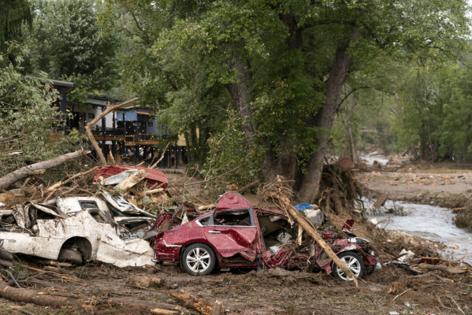US lawmakers agree to include more than $100 billion in disaster relief as part of funding bill
Published in Political News
WASHINGTON — Congressional negotiators reached agreement on more than $100 billion in emergency relief funding for victims of a series of disasters including back-to-back hurricanes that hit the U.S. Southeast and a bridge collapse in Baltimore.
The disaster aid falls short of the $115 billion President Joe Biden sought in two November requests and will be included in a temporary funding package to prevent a government shutdown Friday night.
Biden administration officials have warned that agencies helping affected residents are running low on funds.
Hurricane Milton hammered Florida in early October with Category 3 winds just weeks after Hurricane Helene caused widespread flooding and devastation in Georgia, South Carolina and North Carolina.
The Biden request also covered continuing recovery from myriad additional disasters including Maui wildfires, the Baltimore bridge collapse along with tornadoes, floods, and droughts around the country.
The deal, reached after weeks of negotiations, includes $33.5 billion in disaster aid for agriculture programs, according to Democrats’ summary of the bill. It also would provide $29 billion for the federal Disaster Relief Fund. The Transportation Department would receive $8 billion, including fully funding the response to the bridge collapse.
A Bloomberg Government analysis of Biden administration projections shows the president’s request directed relief funds to nearly half of all U.S. states.
The breadth of the relief efforts involved bolsters the appeal to lawmakers, House Appropriations Chairman Tom Cole, an Oklahoma Republican, said in an interview before the agreement was announced.
“It’s obviously not just Helene,” Cole said. “You’ve got tornado disasters through the Midwest. We’ve got, obviously, the Baltimore bridge. So there’s a lot of different areas.”
There has been some conservative objections. The hardline House Freedom Caucus had pressed to keep the disaster funding to the minimum necessary and sought funding cuts elsewhere to offset the spending.
_______
(With assistance from Billy House.)
©2024 Bloomberg L.P. Visit bloomberg.com. Distributed by Tribune Content Agency, LLC.




























































Comments